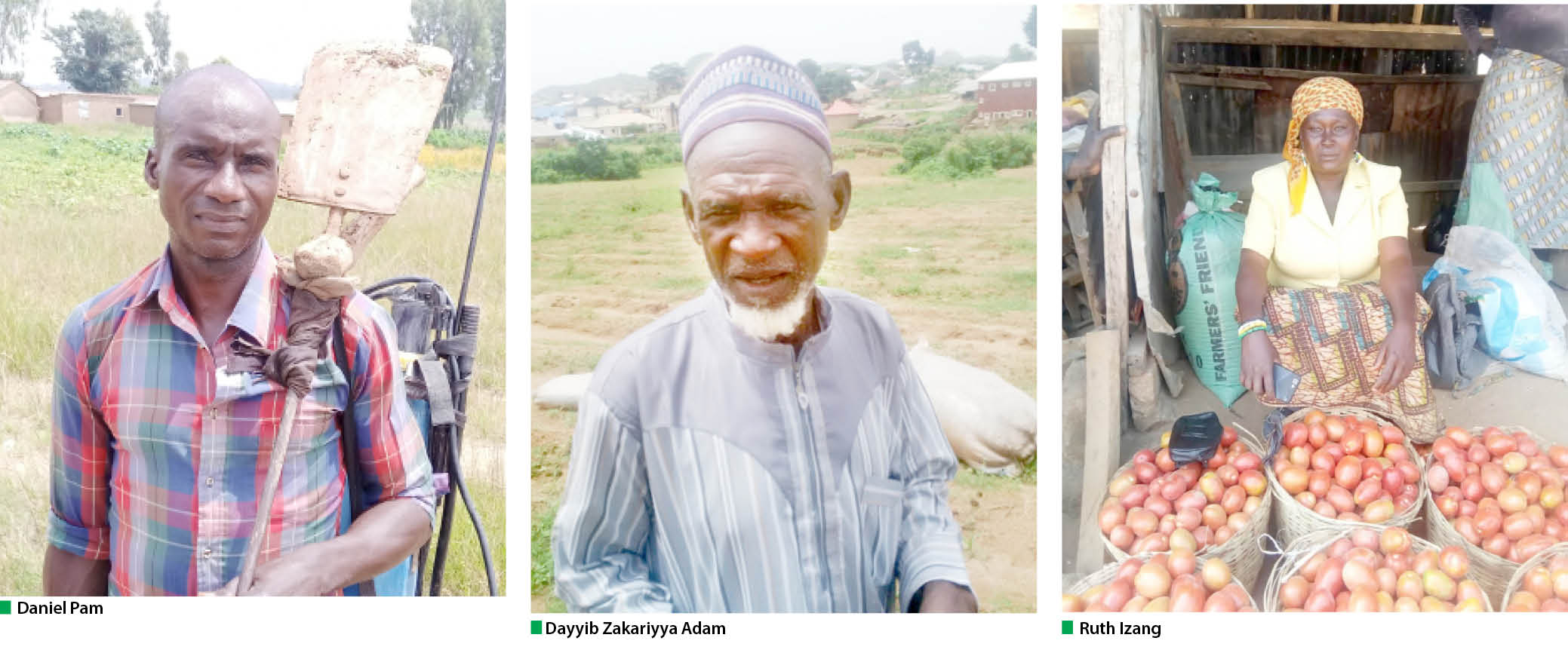Jos crisis: Farmers, crop sellers declare multi-million-naira losses
Following the recent crisis which rocked parts of Plateau State, leading to the imposition of curfew in Jos, the state capital, farmers and crop sellers have recounted the losses they have so far incurred. The violence, which claimed many lives with many houses burned down, also resulted in massive destruction of crops, mostly in Bassa, […]

Following the recent crisis which rocked parts of Plateau State, leading to the imposition of curfew in Jos, the state capital, farmers and crop sellers have recounted the losses they have so far incurred.
The violence, which claimed many lives with many houses burned down, also resulted in massive destruction of crops, mostly in Bassa, Jos North and some parts of Jos South Local Government Area.
As a result of the violence, a 24-hour curfew was imposed on Jos North (where the violence mostly took place), while that of Jos South and Bassa was from 6pm to 6am (dusk to dawn) until they were recently relaxed.
Although business activities are gradually picking up, farmers and crop sellers have declared losses worth millions of naira.
Daily Trust on Sunday spoke with some of the farmers and they explained that apart from their crops, which were destroyed during the crisis, the other harvestable crops perished on the farms as a result of the curfew as people could not go to their farms to harvest.
Other farmers said the already harvested crops could not be taken to the market as a result of the curfew.
And for the crops which require weeding and application of fertilizer, they also perished as the farmers could not go to the farms to weed or go to the market to purchase fertilizer, one of the farmers added.
Crops sellers said produce such as vegetables, tomatoes, fresh pepper, carrots, among others, were locked up in their market stalls and as a result most got spoilt.
Dayyib Zakariyya Adam, who is the chairman of Farmers Association in Gengere Ward of Jos, said the farmers within his ward alone incurred losses of over N100m, not to talk of farmers in the other local government areas, which after comprehensively assessment, should be over N1bn.
He said many of his members, particularly those farming close to residential areas had their farms’ produce stolen at night despite the curfew, as the invaders usually enter the farms from the middle to harvest the crops such that no one can spot them from the edges or front.
Adam said those who committed those crimes did that mostly for consumption because of hunger occasioned by the lockdown.
He said others complained of their crops perishing on the farms like tomatoes, carrots, green beans, pepper as well as maize.
He said after the curfew was relaxed, many of his members came up with different complaints and he had to go round to assess the situation, adding that it was quite pathetic and a great loss to the farmers.
The chairman called on the government to come to the famers’ aid in any possible way, so that their loss/suffering could be reduced to the barest minimum. He thanked Governor Simon Lalong for his initiative to tackle the crisis and urged all and sundry to join hands with him in ensuring lasting peace in order to move the state forward.
He also urged the farmers to remain united and pursue a common goal irrespective of ethno-religious affliction/divide, stressing that whatever affects farming/farmers will affect all in one way or the other.
The women leader of tomatoes market by Cele-Bridge in Jos, Ruth Izang, said she lost so many perishable crops in her stall at the market during the period of the crisis and the curfew which followed.
Izang said most of her members came crying over similar situation and they had to look for ways of moving forward.
She called on members of the society to live in peace and eschew crisis because the impact is usually on women and children.
An SS3 student, whose family cultivates cucumber, said they lost most of their cucumber on the farms because they could not harvest or take them to the market for sale as they often do.
He said the cucumber changed colour from its usual green to yellow, adding that many people in their locality had similar experience.
On his part, Daniel Pam, said his own case was mostly his inability to apply fertilizer or insecticide on his farm for pest control.
He said as a result of the curfew, there was no way he could assess the products. He called for adequate security in the troubled communities in other to forestall future occurrence.
Our correspondent reports that following the lifting of the curfew, farmers have returned to their farms while expecting some support from the government as well as other relevant bodies to overcome their losses.
